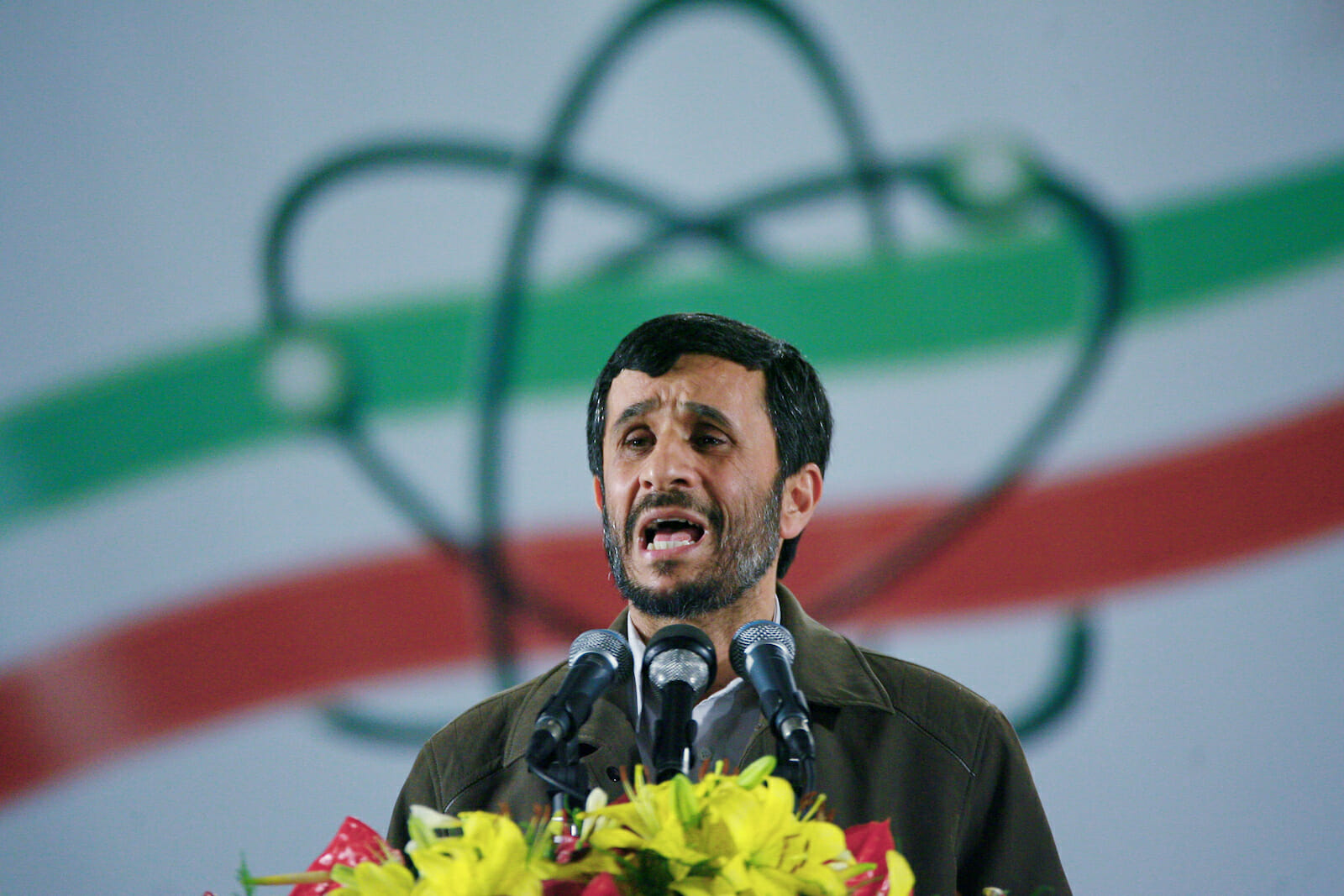
Ahmadinejad is Gone, and so is Ahmadinejadism!
Hassan Rouhani has been Iran’s president since June of last year and it is useful to examine the legacy of his predecessor, Mahmoud Ahmadinejad. For those who have come to believe that Iran is the country dominated by anti-Semites or Holocaust-deniers, I think the most categorical response is what Mohammad Javad Zarif, Iran’s foreign minister, told the daughter of Nancy Pelosi, the minority leader in the U.S. House of Representatives, Christine Pelosi, in a Twitter exchange on September 5, 2013: “Iran never denied it [the Holocaust]. The man who did is now gone. happy new year.”
When Mahmoud Ahmadinejad was elected as Iran’s president in June of 2005, neither I nor any journalist or political expert in Iran had a clear idea of what his foreign policy would be. Domestic and economic policies are not the subject of our discussions here. As time went by, it became clear that Ahmadinejad’s foreign policy was based on no single principle, but adventurism, ultra-idealism and frantic decisions that would render him a publicity stunt rather than a chief executive.
In his 8 years in office, he gave interviews to virtually all the world’s major newspapers, news agencies, TV and radio stations and sent out several fiery and drawn out letters to world leaders that were never responded to and simply led to further humiliation for the Iranian people. He justified his actions and decisions as part of his administration’s public diplomacy, but unfortunately, Ahmadinejad was stupendously ignorant about the art of diplomacy.
He was the one who complicated and entangled Iran’s relations with the international community, especially the United States, by taking up an adamant and obdurate approach to the nuclear program, delivering tirades and directing verbal attacks against Israel, publicly denying the Holocaust and threatening his political rivals. He could never create an international alliance to build up support for Iran and even his outreach to Latin American and African nations was a failure.
But Ahmadinejad’s mismanagement, his incapability in bringing Iran’s nuclear standoff to an end, his hasty and unpremeditated decisions, like sacking his own foreign minister while he was on an official visit to Senegal, his speeches – especially his September 2007 lecture at Columbia University, which his supporters described as his greatest victory – did not help assuage his critics.
Nevertheless, having known that what Ahmadinejad was doing was flawed and hard to justify, I always tried to support him and defend him, because like it or not, he was my president. I knew well that publicly criticizing Ahmadinejad, as what hundreds of American websites, magazines and TV/radio stations were doing, would simply backfire and act as a means to justify his actions in the eyes of his domestic supporters. So I acted in contrast to what my heart was telling me and defended Ahmadinejad. However, it’s now time to admit that Ahmadinejad was not representative of Iran and what he said and did was not a reflection, by and large, of Iranians.
Among the very many misstatements and fallacies that Ahmadinejad pursued was to openly question the Holocaust. Of course he was wrong, but not because he questioned an historical fact. He was wrong because questioning the Holocaust is not the responsibility of a president or a government official. It’s the responsibility of historians, authors, and scholars to investigate and research such issues.
Ahmadinejad delivered several fiery speeches in condemnation of Israel, calling for its destruction and elimination from the face of the Earth. Again he took a position that many Iranians do not hold and which ostracized Iran from the world community. Attacking a political entity or a country again and again on every occasion and threatening its existence, even if we are opposed to the policies and practices of that state, undermines our own position. Personally, I am an outspoken critic of the discriminatory measures taken by Israel against Palestinians and the besieged citizens of the Gaza Strip.
There’s no doubt that Israel continues to defy and violate several UN Security Council resolutions, that it imprisons and targets Palestinians relentlessly and that its policy of settlement constructions is a clear violation of international law. But the president of a country like Iran, which has always been at odds with Israel for several reasons, should not give his opponents and critics the excuse to accuse him of anti-Semitism, which many Iranians, including myself, have argued.
Ahmadinejad continuously castigated the leaders of several European countries and the United States for their policies. At the same time, he continued sending hostile letters to them, including to then French President Nicolas Sarkozy and the German Chancellor Angela Merkel. This policy was really disappointing for the president of a large, civilized and ancient country like Iran. Iran has never had any conflict or dispute with any member of the European Union or the European continent at large. I remember that during the presidency of Mohammad Khatami, Britain was Iran’s first trade partner.
In the final years of his presidency, Belgium and Switzerland were Iran’s leading business partners, while hundreds of European firms and companies opened offices throughout Iran and were cooperating with Iran. There was no need to create an artificial conflict with Europe, with which Iran has historically maintained robust and close ties. But Ahmadinejad’s worldview, which was based on producing controversy and attracting attention, didn’t allow him to continue steady and healthy relations between Iran and Europe that had existed for several decades.
Ahmadinejad’s foreign policy was his Achilles heel, and I am sure his performance in office played a leading role in building up popular support for Hassan Rouhani, the “diplomat sheikh” in the 2013 presidential elections. Rouhani, since the beginning of his campaign, had vowed to restructure Iran’s foreign relations and engage the international community in a constructive manner. People embraced his promise. Rouhani has been relatively successful in melting the ice of Iran’s relations with the world.
I am not judging Ahmadinejad’s personality or morality. But what I want to stress is that Ahmadinejad was an anomaly that is gone and the world should now look at Iran in the light of its new political atmosphere. Ahmadinejad was the representative of Iran and the Iranians, but it does not mean that he represented the reality of Iran. Iranians have never been anti-Semites, and the peaceful coexistence of Jews and Persians throughout history is a role model for all Middle East nations that cannot tolerate religious diversity in their societies. Iran is home to the Middle East’s largest Jewish community.
For 276 years, Iran has never attacked nor invaded any country. The last military expedition that was initiated was Nader Shah’s invasion of India in 1738. So if Ahmadinejad made bellicose and aggressive remarks or appeared to be a hardliner, it does not mean that 75 million Iranians reflected his views or want a country to be wiped off the world map. Those who cannot distinguish between the personal viewpoints of a politician and the wills and aspirations of a nation are, forgive me, ignorant.
Ahmadinejad’s era is over. Let’s view the realities and truths of Iran concealed behind the screens of the American TV channels and the front-pages of American newspapers. Iranians overwhelmingly voted for moderation and interaction with the world in the June 14, 2013, presidential elections. Iran now has an historic opportunity to join the international community. Ahmadinejad is gone, and so is Ahmadinejadism!

